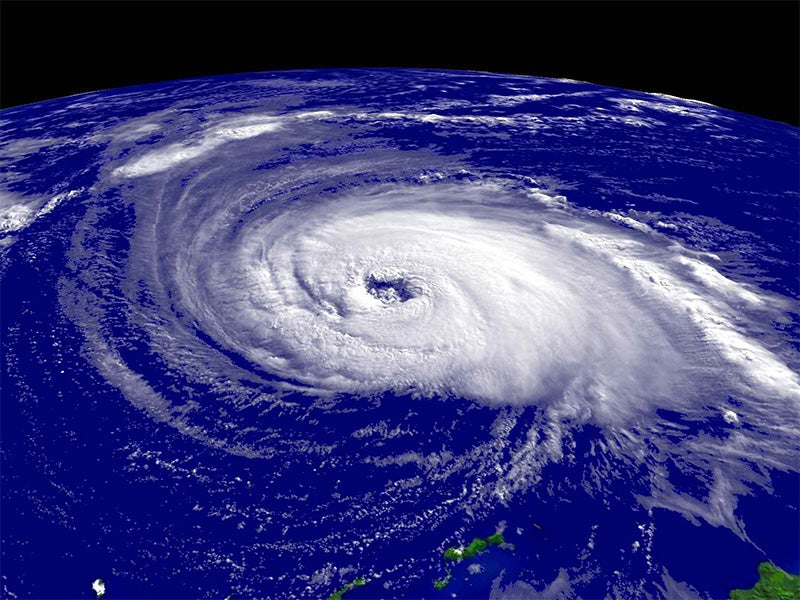Friday Finds: Girly-Named Hurricanes Less Feared
People don't take female-named hurricanes as seriously—and suffer the consequences.

This page was published 11 years ago. Find the latest on Earthjustice’s work.
In this day and age, it’s bad enough that, on average, working women still make less money, do more housework and receive fewer promotions than men. Now, it seems that even female-named hurricanes get a raw deal by being taken less seriously than those with male names.
According to researchers at the University of Illinois, an analysis of more than six decades of death rates from U.S. hurricanes found that people tend to assume that severe hurricanes with feminine names like Connie or Betsy will be less severe than those with masculine names like Ike or Dean. This assumption runs so deep, in fact, that even those who pride themselves on being equality-minded were affected by the gender of hurricane names.
“Such gender biases are pervasive and implicit,” said Madhu Viswanathan, a co-author of the study. “This appears to be a widespread phenomenon.”
The sexism does more than just irritate, however; it also results in a higher death toll.
Because people in the path of a female-named hurricane may take fewer protective measures, they are more vulnerable to harm. In fact, the team's analysis suggests that changing a severe hurricane's name from the masculine "Charley" to the feminine "Eloise" could nearly triple its death toll. They also found that the more feminine the storm's name, the more people it killed.
So why are hurricanes given people’s names, anyway? Well, for several hundred years they weren’t. Instead, many hurricanes in the West Indies were named after the particular saint’s day on which the hurricane occurred, according to the National Oceanic and Atmospheric Administration. But in 1953 the United States began using female names for storms, ostensibly because the exclusively male meteorological community in the U.S. considered female names “appropriate for such unpredictable and dangerous phenomena.” Not surprisingly, that practice fell out of favor in the 1970s during the women’s liberation movement. Since then hurricanes have been named alternatively with male and female names.
With climate change predicted to increase the frequency and severity of hurricanes, it might be time to switch to using only male names, or to using a different system entirely. In the meantime, President Obama’s recently announced climate pollution standards for power plants will go a long way in mitigating the climate changes that will affect both men AND women, no matter what they’re called.